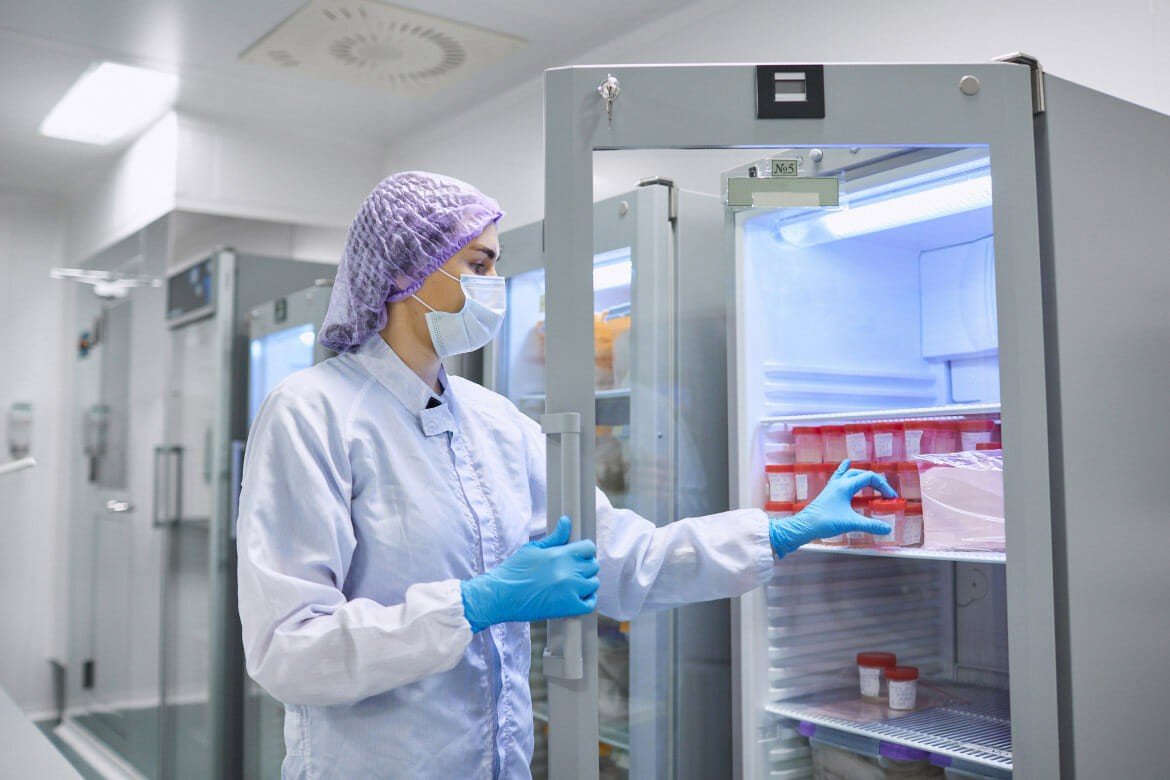It is typically ideal that practitioners buy a medical refrigerator rather than use a domestic refrigerator if they are storing vaccines, taking part in a VFC initiative, or operating in surroundings with irreplaceable biomedical matter (like medical research labs, academic institutions, and forensic science laboratories), or are simply trying to adhere to criteria set out by the CDC.
Many people believe that a medical and domestic fridge are identical and that they may use both to store things. They are unaware that this perception leads to some incorrect storing. This is why various refrigerators are available; medical refrigerators are the only ones suitable for storing vaccines, blood samples, and more. Let’s dissect the differences between the two for a better understanding.
The Temperature Element
The temperature settings of domestic refrigerators and medical refrigerators vary significantly. Moreover, these temperature variations set them apart and make them suitable for different requirements and environments.
- There is a predetermined range of allowable temps for household refrigerators. However, you can get a larger range of temperatures with many medical refrigerators. This range of temperature settings allows storing objects that need significantly cooler temperatures.
- Numerous small residential refrigerators also have a freezer section. However, medical refrigerators only have one central cavity.
- Also, medical and vaccine refrigerators maintain their temperature as closely as possible to the set point. On the other hand, a domestic refrigerator typically experiences more significant temperature swings.
The Control Element
The control element is crucial for medical-grade options since scientists and other pharmaceutical workers need to control the internal temperatures on the go and maintain them to a certain degree.
- Precision digital temperature controls are often a crucial component of medical refrigerators. However, household refrigerators feature less accurate dials and other mechanical features. This is crucial because you must maintain vaccinations and pharmaceuticals at exact temperatures with little change.
- Additionally, the majority of medical refrigerators have an accurate exterior temperature display. So, you can observe the precise temperature without opening the refrigerator, thanks to this display. Even more than just the current temperature, this monitor has the ability to display the lowest and highest interior temperatures.
- Standard refrigerators often employ mechanical temperature controllers for temperature control. In general, temperature precision is thus subpar. However, vaccine fridges can guarantee storage security due to accurate temperature control, broad temperature modification range, and temperature adjustment increments of up to 0.1 degrees.
The Ventilation Element
Many medical refrigerators come with several fans or at least a single, more powerful fan to deal with high temps. A lot of laboratories have air conditioning. However, with so many people and so much machinery producing heat, they may still be uncomfortable places to work. So, ventilation is a crucial element that sets the two options apart.
- The majority of domestic refrigerators lack integrated fans. Therefore, this may result in uneven temperature distribution across the cavity and reduced airflow. On the other hand, medical refrigerators contain fan mechanisms that rapidly lower the temperature once the door is opened.
- Additionally, wire shelving that improves ventilation is often an essential part of medical refrigerators. Household refrigerators, however, contain air-blocking glass or plastic shelves that are simpler to clean but not efficient.
- The ducting on a pharmaceutical-grade refrigerator can also maintain a consistent temperature. It can maintain the temperature as closely as possible to the setting. However, a household fridge often contains crisper bins. These bins help store food. Still, they sometimes obstruct ventilation and cause temperature pockets. This is not ideal for storing medicines or vaccines.
The Variation in Features
Medical refrigerators offer a few extra features often absent from commercial or domestic models. These features maintain the integrity of vaccines and medicines and are necessary when storing medical items.
- Self-closing panels and very precise door alarms are standard features of medical refrigerators. This is essential because leaving the door open on a medical refrigerator might be dangerous and have long-term effects on the health of thousands of patients. These characteristics are often absent from household refrigerators.
- Medical refrigerators often feature keyed locks on their doors. This characteristic is relatively uncommon in residential refrigerators.
- Standard plugs that come with a household fridge are readily removable from walls. On the other hand, medical refrigerators often incorporate “green dot” outlets and medical-grade wires to provide a consistent power supply.
- Additionally, every medical fridge features superior door seals that keep outside air out. The majority of home refrigerators lack this feature.
Choosing Between Medical and Domestic Refrigerators
Medical refrigerators include a few extra functions that household versions do not have. Among these characteristics are glass doors, which enable users to find the item they want before unlocking the door.
Consequently, there is a reduction in door opening time, and the temperature is kept constant. This is essential if you’re using a pharmacy refrigerator, where pricey vaccinations that are difficult to replace need constant temperatures to retain their potency and avoid spoiling.
Additionally, a medical refrigerator often has grated shelves to improve ventilation and maintain more constant temperatures throughout the unit. They typically have an alarm that alerts the user if the fridge’s doors have been left ajar.
This design will maintain stable inside temperatures and restrict temperature variations to avoid vaccine deterioration, per CDC standards for the storage of vaccines. You can choose any vaccine fridge in Australia and enjoy the above features to keep your vaccines and medicines stable for ex
